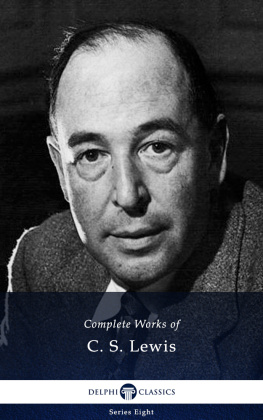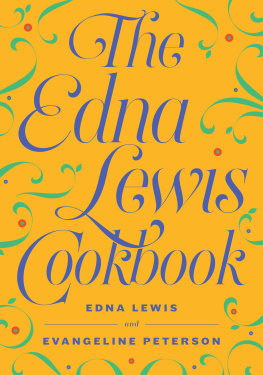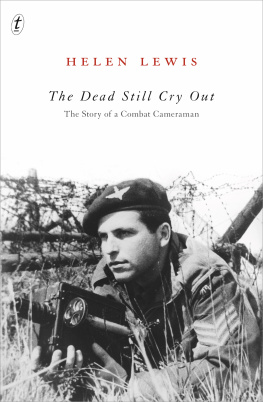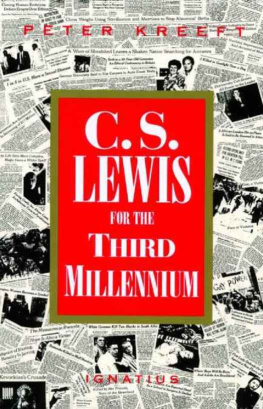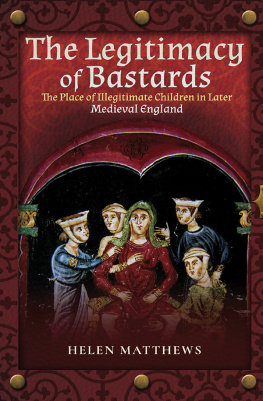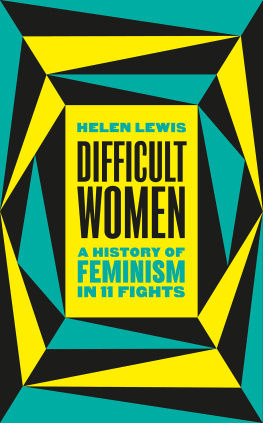Helen Matthews Lewis
Helen Matthews
Lewis
Living Social Justice in Appalachia
Helen M. Lewis
EDITED BY PATRICIA D. BEAVER AND JUDITH JENNINGS
Excerpts from It Comes from the People: Community Development and Local Theology, by Mary Ann Hinsdale, Helen Matthews Lewis, and Maxine Waller; Introduction by Helen Matthews Lewis, in Images of the Appalachian Coalfields, by Builder Levy. Used by permission of the Temple University Press, 1989 by Temple University. All rights reserved.
No Ordinary Teacher: Helen Lewis of Highlander by Patricia A. Gozemba, in Pockets of Hope, ed. Patricia A. Gozemba and Eileen de los Reyes. Copyright 2001, reproduced with permission of ABC-CLIO, LLC.
Copyright 2012 by The University Press of Kentucky
Scholarly publisher for the Commonwealth,
serving Bellarmine University, Berea College, Centre College of Kentucky, Eastern Kentucky University, The Filson Historical Society, Georgetown College, Kentucky Historical Society, Kentucky State University, Morehead State University, Murray State University, Northern Kentucky University, Transylvania University, University of Kentucky, University of Louisville, and Western Kentucky University.
All rights reserved.
Editorial and Sales Offices: The University Press of Kentucky
663 South Limestone Street, Lexington, Kentucky 40508-4008
www.kentuckypress.com
16 15 14 13 12 5 4 3 2 1
Unless otherwise noted, photographs are courtesy of the Helen Matthews Lewis Papers, W. L. Eury Appalachian Collection, Special Collections, Appalachian State University.
Library of Congress Cataloging-in-Publication Data
Lewis, Helen Matthews.
Helen Matthews Lewis : living social justice in Appalachia / Helen M. Lewis ; edited by Patricia D. Beaver and Judith Jennings.
p. cm.
Includes bibliographical references and index.
ISBN 978-0-8131-3437-6 (hardcover : alk. paper)ISBN 978-0-8131-3454-3 (ebook)
1. Lewis, Helen Matthews. 2. Women political activistsAppalachian Region, SouthernBiography. 3. Political activistsAppalachian Region, SouthernBiography. 4. Women college teachersTennessee, EastBiography. 5. Social movementsAppalachian Region, SouthernHistory20th century. 6. Social justiceAppalachian Region, SouthernHistory20th century. 7. Community lifeAppalachian Region, SouthernHistory20th century. 8. Appalachian Region, SouthernSocial conditions20th century. 9. East Tennessee State UniversityFacultyBiography. 10. Appalachian Region, SouthernStudy and teaching (Higher)History20th century. I. Title.
HN79.A127L49 2012
303.372092dc23
[B]
2011034188
This book is printed on acid-free paper meeting
the requirements of the American National Standard
for Permanence in Paper for Printed Library Materials.
Manufactured in the United States of America.
| Member of the Association of
American University Presses |
Contents
Stephen L. Fisher
Judith Jennings
Patricia D. Beaver
John Gaventa
Juliet Merrifield
Bill J. Leonard
Illustrations
Acknowledgments
OUR FIRST THANKS must go, of course, to Helen Matthews Lewis for her lifelong commitment to social justice. This book would not have been possible without her faith, her vision, her words, and the time, care, and patience she gave us over the last three years. Although we have managed to keep the focus on Helen here, it was no easy task. In her generosity of spirit, she constantly guides and deflects us to the important work of all those whom her life has touched. We are deeply grateful and truly humbled by working with her on this enterprise.
Gurney Norman, novelist, poet laureate of Kentucky, and Appalachian studies activist, first inspired the book by suggesting the value of a Helen Lewis reader to Laura Sutton, who was then an editor at the University Press of Kentucky. Gurney further suggested that Judith Jennings take a leading role in putting together such a reader. Judi consulted with Helen and other women friends attending the conference of the Appalachian Studies Association in Knoxville in 2007. At a gathering at the home of Mary Thom Adams, a happy band of womenincluding Helen, Mary Thom, Beth Bingman, Amelia Kirby, Judi, Patricia D. Beaver, and othersagreed to work together to develop a reader that would capture the range and diversity, the challenges and joys, the lessons and reflections, we all witness in Helens life.
That same year, Pat Beaver began acquiring Helens papers for Appalachian State University (ASU). Pat moved boxes of files, clippings, notes, and photographs from Helens house in Georgia to the ASU campus in Boone, North Carolina. These treasures went first to Pats office, on their way to their permanent home in the W. L. Eury Appalachian Collection archives. As an important first step, graduate assistant Zach Fulbright compiled an initial list of all the published and unpublished papers and reports in the collection.
Helen, Judi, and Pat began working together on this manuscript in brainstorming sessions at the Center for Appalachian Studies at ASU in 2008. Zach volunteered to help and enthusiastically converted the extensive written notes from a whiteboard into the first spreadsheet of texts, tracking all those preliminarily selected to be excerpted. Graduate assistant Seaton Tarrant traveled with Pat back to Georgia to gather up final items, taking notes as Helen narrated names and places from her photo albums. Seaton scanned and prepared the first full-text digital files of Helens papers. Several cohorts of graduate student assistants then organized, cataloged, and retyped the papers selected for inclusion in this collection. Graduate assistants Brittony Fitzgerald, Tracey Jerrell, Katie Phillips, Danielle Rector, and Rachel Westrom and undergraduate students Hayley Sherman and Ashia Tabb retyped Helens unpublished speeches and papers, proofread and cataloged material, and moved the book process forward in many other valuable ways. Graduate student Donna Corriher proofread the entire final manuscript. Office manager Debbie Bauer supervised the work of each of the students, deflected telephone calls, and applied her MLA skills to the bibliography.
During the first work session in 2008, Pats neighbor and retired Spanish teacher Mary Boyer helped us come up with the title: Living Social Justice. Subsequently, Jeff Boyer, ASU anthropologist and Highlander Center board member, provided encouragement and a bibliography for . Sandra L. Ballard, editor of the Appalachian Journal, offered editorial advice, friendship, and wise counsel from the beginning of the project to its completion, as well as editing the final text of the bibliography. Fred Hay, professor and librarian of the W. L. Eury Appalachian Collection at ASU, provided editorial advice, as well as sure attention to Helens papers in his oversight of cataloging them, along with reference librarian Greta Browning.
We are grateful to the New York Times and Temple University Press, respectively, for permission to use the photograph of the Childrens Campaign of 1946 and excerpts from





